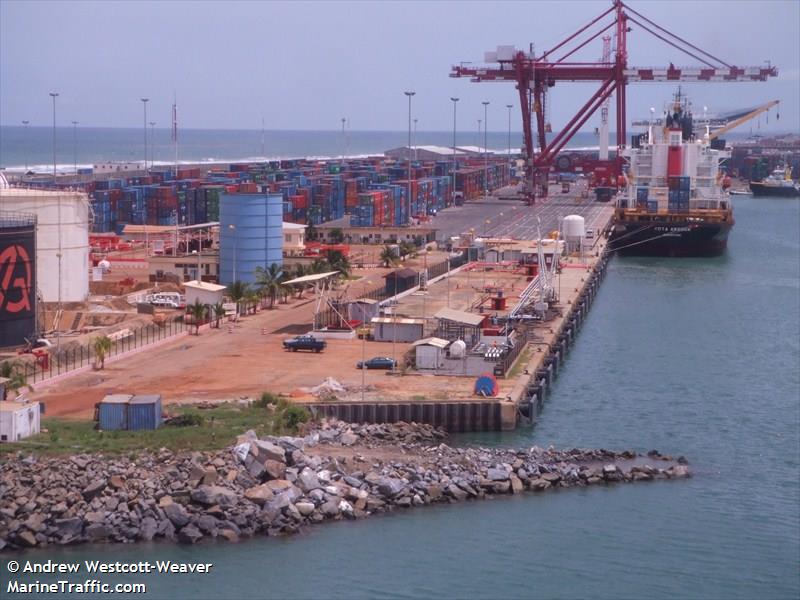Benin Republic Modernising Cotonou Port to be the best in West Africa
Benin Republic has embarked on a major modernization process of the Port Autonome du Cotonou (Cotonou Port) to make it more competitive, efficient and effective in meeting the needs of the 21st century trade demands and also align with best practices in the sector. With the ongoing modernisation project, the government hopes to build the best seaport in West Africa as Cotonou slowly but consistently becomes West Africa’s transshipment hub. The 300 hectare transit port is in a highly competitive sector and region, especially with the overall growth of trade in West Africa.
Government sources in Cotonou say that the Port of Cotonou contributes more than 60% of GDP and mobilizes more than 90% of domestic resources in the country. As part of efforts to ensure that the running and management of the Port meets global best practices, the government of Benin has entrusted the management of Cotonou Port Authority, the administrative structure to the Port of Antwerp International (PAI) Belgium with the aim of reorganizing and restructuring the administration: computerization of services, dissemination of a code good behavior, staff training among other things.

To this end, the Port of Cotonou has raised the bar on quality control, burnish its image within the global shipping industry, and reduce its waiting times. The country equally wants to take advantage of its geographical position and remains a transit point, especially to the Nigerian giant market of 190 million and Niger which has been loyally using its port. Speaking on the development, Chaibou Attahy from Niger Republic said that there is need for the management of the Port to reduce waiting time, and also reduce the cost of clearing containers because it is still expensive compared to others especially its closest competitor which is the Lome Ports with a turnover of 18.3 percent from its port where it has heavily invested the facilities.
read also : Businesses in Benin Republic Agonise Over Border Closure with Nigeria
However, a shipping expert said that for the government of Cotonou to modernize the Port, they must dredge it to accommodate larger vesels like those of Abidjan, Côte d’Ivoire, and Tema, Ghana, that can accommodate larger vessels because the basins are deeper and more extensive because the water body in Abidjan is 1,000 ha against 80 in Cotonou, thus the cost of Passage is lower and delays faster. This is basically why the Beninese government is investing about 450 million euros on the ports modernization by 2020. The Managing Director of Cotonou Ports Joris Thys said that the government is bent on making the Cotonou’s autonomous port an innovative, secure and reliable logistics platform for international trade,he added that “we want international handling and logistics companies to come and invest”.
Kelechi Deca

Kelechi Deca has over two decades of media experience, he has traveled to over 77 countries reporting on multilateral development institutions, international business, trade, travels, culture, and diplomacy. He is also a petrol head with in-depth knowledge of automobiles and the auto industry.



